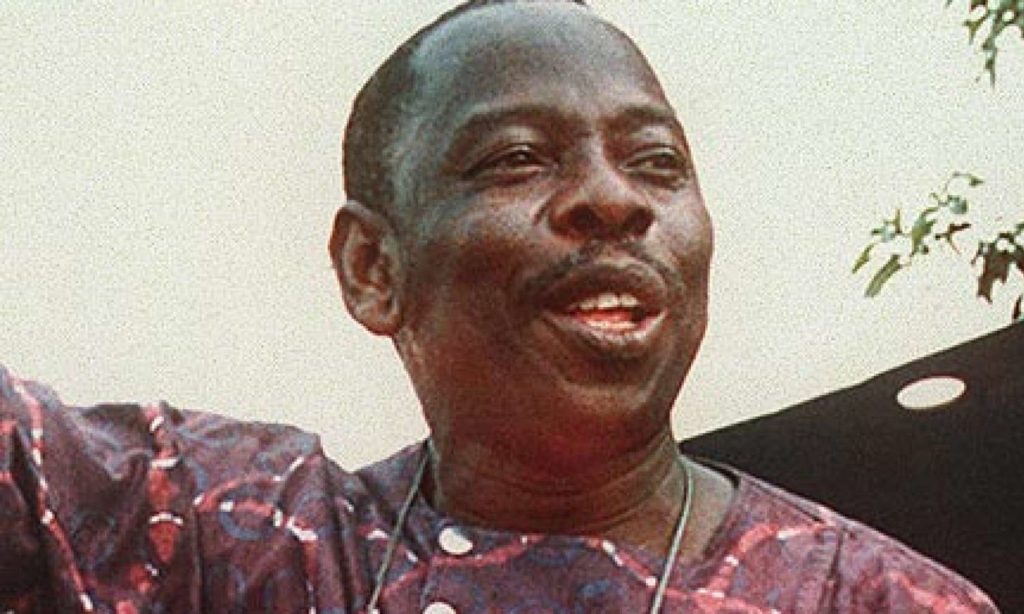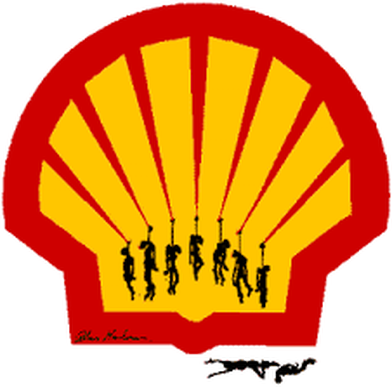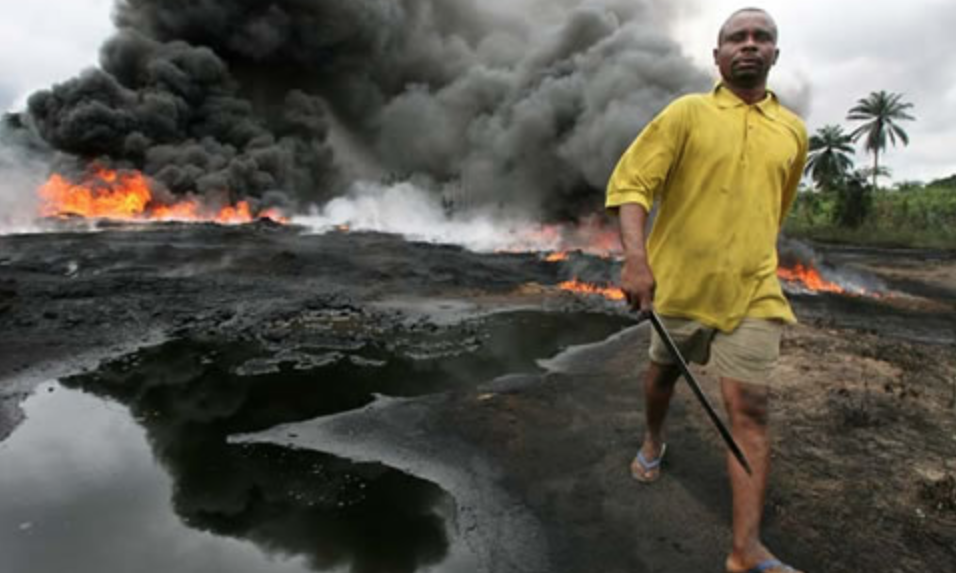Shell has a long history of environmental damage and human rights violations in Ogoniland, in the Niger Delta. For years, Shell polluted Ogoniland with oil spills and gas flaring, a practice where the gas that is released when drilling for oil isn’t captured but simply burned off.
In 1990, the writer and activist Ken Saro-Wiwa formed the Movement for the Survival of the Ogoni People (MOSOP), a group that would use non-violent means to assert the rights and recognition of the Ogoni people and their culture. A peaceful protest three years later mobilised 300,000 Ogonis. MOSOP had observed that while others had grown rich from the oil industry’s presence in Ogoniland, spills and gas flaring had
‘led to the complete degradation of the Ogoni environment, turning [our] homeland into an ecological disaster’.
In 1993, MOSOP declared that Shell was no longer welcome to operate in Ogoniland. The protests by MOSOP were effective – Shell repeatedly raised concerns about Ken Saro-Wiwa and MOSOP with Nigeria’s government, framing them as a potential problem for the company that would bring negative economic impacts.
In 1994, four Ogoni chiefs were brutally murdered and Ken Saro-Wiwa, along with eight other leaders from MOSOP, were arrested and put in prison. Eight months later they were formally (and unjustly) charged with murdering the chiefs. While in prison, Saro-Wiwa was routinely tortured, put in leg-irons, and denied access to family, friends, a lawyer and medication.

The trial was widely judged to be flawed, unfair and the charges themselves politically motivated. Evidence suggests that Shell bribed prosecution witnesses in the trial although the company denies this claim. But Shell had been meeting secretly with the Nigerian military government. Platform reports that in March 1995, a meeting took place between four senior Shell officials, the Nigerian High Commissioner and the Nigerian Army and Police at the Shell Centre on London’s South Bank, where a strategy was planned to counter the MOSOP protests.
In his closing testimony at the trial, Saro-Wiwa wrote that:
‘I and my colleagues are not the only ones on trial. Shell is here on trial… The Company has, indeed, ducked this particular trial, but its day will surely come and the lessons learnt here may prove useful to it for there is no doubt in my mind that the ecological war that the company has waged in the [Niger] Delta will be called to question sooner than later and the crimes of that war be duly punished.’
 On 10 November 1995, Saro-Wiwa and eight others were executed despite international calls for leniency. UK Prime Minister at the time John Major described it as ‘a fraudulent trial, a bad verdict, an unjust sentence. It has now been followed by judicial murder.’
On 10 November 1995, Saro-Wiwa and eight others were executed despite international calls for leniency. UK Prime Minister at the time John Major described it as ‘a fraudulent trial, a bad verdict, an unjust sentence. It has now been followed by judicial murder.’
Almost a decade later, in June 2009, Shell agreed to pay $15.5m (£9.6m) to settle a legal case where the company was accused of having collaborated in the executions of the Ogoni Nine. The settlement was agreed on the eve of a federal court trial to take place in New York and was one of the largest settlements ever agreed by a multinational corporation over human rights violations.
For more on Ken Saro-Wiwa and the Ogoni Nine, visit Platform’s website:
https://platformlondon.org/background/the-death-of-ken-saro-wiwa/
